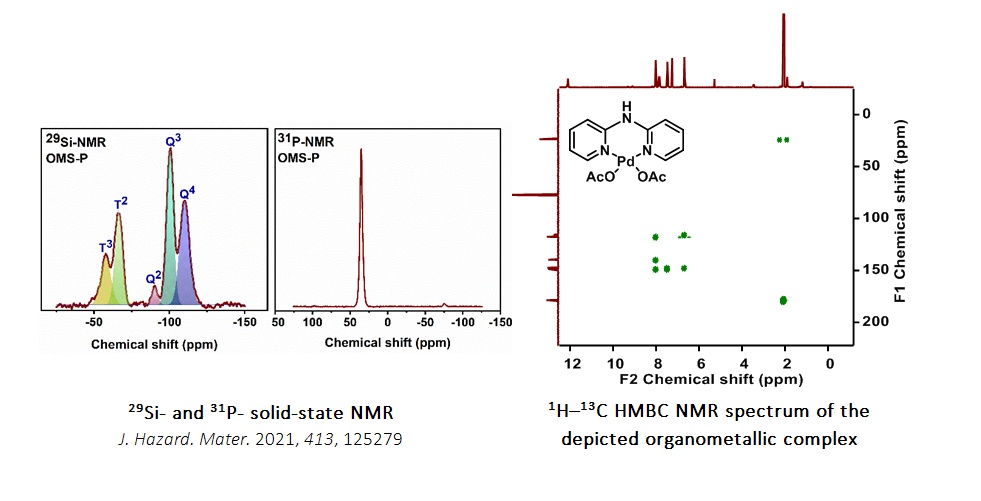

Nuclear magnetic resonance (NMR) spectroscopy is an analytical technique for observing local magnetic fields around certain atomic nuclei. This non-destructive spectroscopic method represents the electronic structure of molecules by measuring the resonance frequency of individual atoms in the molecule. It provides detailed information about the molecule structure, dynamics, and interactions. The NMR spectroscopy can be applied to a wide range of liquid and solid samples (ACS Sustain. Chem. Eng. 2020, 8, 4764). The CATRIN-RCPTM has at its disposal a state-of-the-art 400 MHz NMR instrument manufactured by JEOL Ltd. (JNM-ECZ 400). This spectrometer is equipped with ROYALPROBE for high‑resolution 1D- and 2D-NMR measurements at variable temperatures ranging from 25 °C to 130 °C. Moreover, the NMR system has a 3.2 mm HX double-resonance MAS probe for solid-state NMR experiments with a spinning rate up to 22 kHz.

Head of the group: Aristeidis Bakandritsos, Ph.D,
E-mail: a.bakandritsos@upol.cz
Telephone: +420 585 634 950
Expert scientist: Elmira Mohammadi, Ph.D.